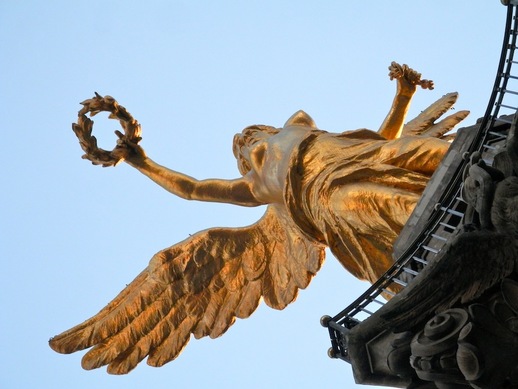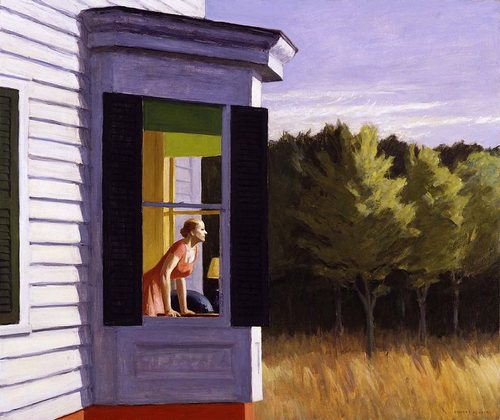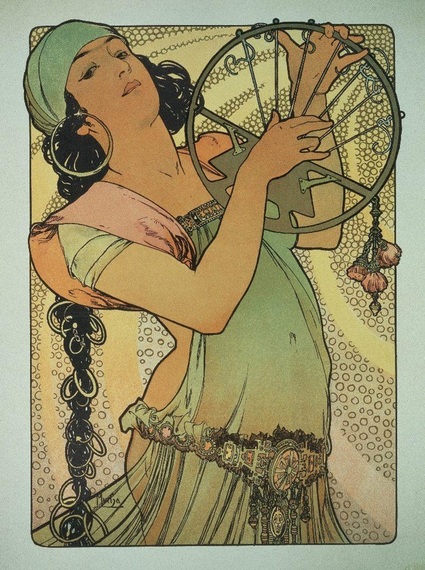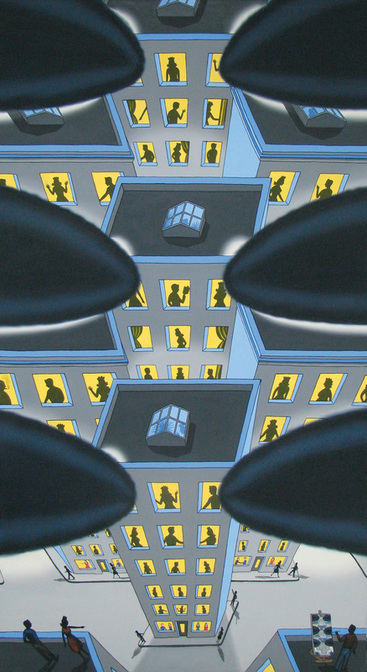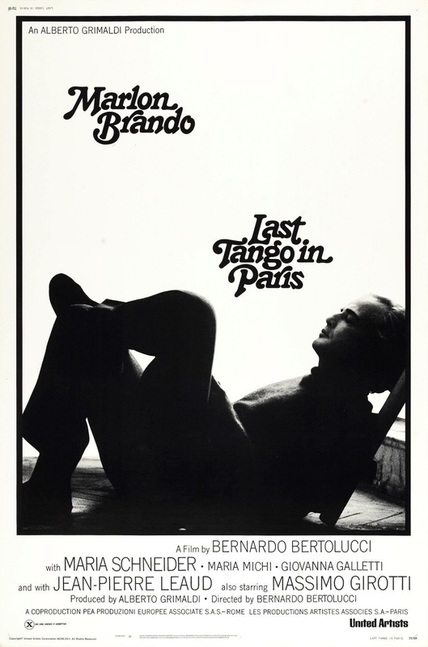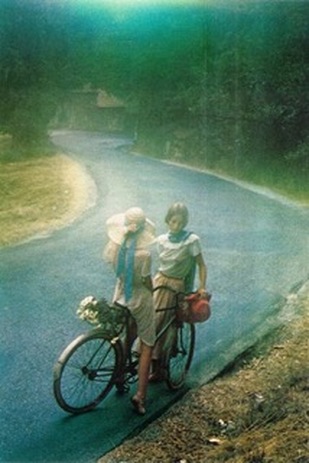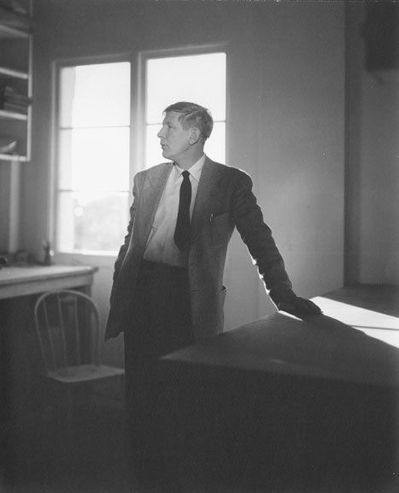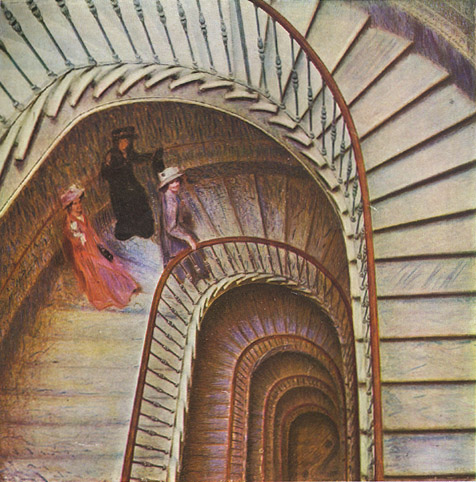|
Stevia
By the third day, you would consider drowning a kitten, or giving up sex, for a decent cup of coffee. Such a pedestrian pleasure is hard to come by, apparently, and when you ask for it, a mug of almost-hot water gets plopped on the table with a jar of instant. Looks like sisters are doing it for themselves. A better bet is the OXXO chain, where you can get a Styrofoam take-out of those fake lattes. While not technically “good,” machine cappuccino is a delicious kind of guilty. And also, they are crack. Except that in Mexico, everything is ten times sweeter, and you can choke on the sugar. It’s not drinkable, but the sugar-free is worse. It’s Aspartame extremism. The stuff is so sweet that your eyes unhinge themselves from their sockets. Coffee in Mexico is, quite literally it seems, more rare than gold. There is gold everywhere, mountains of it, rising above you, showing you the way to heaven. Up, up, up it goes, taking your eye onto the frescoes where painted saints tell their stories. The altar in front of you is carved out of solid gold, and all the horrible and majestic history of Mexican mining and the Indians and land and the Spanish thieves and the grandeur of the church and beauty and all the art and skilled craftsmanship required and inspired, all of it is told to you on these altars. The candelabra, the frames on the Old Masters, the painted trim and the statues, gold, gold, gold. At night the flames to the dead and of our sins flicker and the churches thrum with quiet fire. You can kneel inside of this beauty, you can light another candle for a lost soul that you are missing so hard you fear you could fall open, you can watch the silent tear-streaked faces glowing gold in the trembling light. There is a gold beacon, a seven tonne angel, high above the maze and urgency of city traffic. El Angel, the Angel of Independence, stands triumphant and 22 feet tall, atop a column of 118 feet. Artist Enrique Alciati gave her wings by 1910 after a series of stops and starts and crumblings. Now Victory blinds in bronze, melting in the sun in a top coat of pure 24 karat gold. But you can’t get a proper coffee. Don’t worry, we’ll go to Starbucks, the artist tells you. If we have to, we have to. You take two strong Americanos over to the Malecon and watch a little man all in white balancing a few dozen cubic metres of colourful puffed snacks on a bicycle. You have already tried the dayglo green cheesies, and they might not have been bad if the guy hadn’t soaked them with hot sauce. The flavour had real pep, but the soggy texture negated the crunch that you needed from such a calorie investment. You sit behind the famous bronze dolphins and try to count the gold rays across the sea to the horizon but there are hundreds of them. The artist is telling you about what it was like, coming home after fifteen years. How he had gone into America through a hole in the fence when he was twelve, he’d been sent by his family to the other side. He’d had something of a life there, eventually. A wife and two kids, nearly teenagers now. A few years here and there in prison. You both chain smoke, sipping the coffees. The artist wonders if he will ever leave again. He hopes never, he was homesick every minute and he is happier now, even though he was also near the ocean there. He doesn’t mind serving tourists at a restaurant or making postcard paintings of the river or the sea. He doesn’t want to live away from Mexico. There’s Aztec blood still running through these veins, he says. Except he’s always been curious about Canada. Can you find construction work there if you’re willing, he asks. Is it easy to sell your art? Is the cold pretty? But you wonder about moving here, what it would take to never have to leave. Its sweetness has been mainlined into your veins and going back home feels like grief. You could be an ex-pat, like Toller Cranston or Elizabeth Taylor. You could open a coffee shop, you could have good coffee with a Stevia option, nothing artificial, and local art, and maybe some poets could read there at night, too. Lorette C. Luzajic Lorette C. Luzajic is a Toronto creative working in collage, paint, photography, poetry, and prose. Visit her at www.mixedupmedia.ca.
0 Comments
Turning
At the window she is a ship’s prow, leaning in to gather light, countenance resolute against dawn’s revelations. Is she waiting for her lover’s return? A late-shift husband? Or is he leaving for the office or a mistress? Maybe he’s already gone, dispatched, and she is witness as his spirit departs, the still dark forest taking back its secret. Maybe the Atlantic is just out of frame, the water calling her to leave the chores, kids and kitchen and this is the moment of turning. Collin Kelley Collin Kelley is the author of the poetry collections Better To Travel, Slow To Burn, After the Poison and the American Library Association-honored Render. Sibling Rivalry Press has published his trilogy of novels, Conquering Venus, Remain In Light and Leaving Paris. His poetry, essays and interviews have appeared in journals, magazines and anthologies around the world. www.collinkelley.com Salome’s Belt
Gold hangs low on her hips swings with sunset red stones embedded in its pale copper with pearls for stars. Bells of mossy green dangle and chime-- even the dead hear. Taunja Thomson Taunja Thomson’s poetry has most recently appeared in Sandy River Review, Watershed, Portage Magazine, and Amore, an anthology of love poems. Her poem “Seahorse and Moon” was nominated for the Pushcart Award in 2005. In 2016, her work will appear in Potomac. She has co-authored a chapbook of ekphrastic poetry which has recently been accepted for publication and has a writer’s page at https://www.facebook.com/TaunjaThomsonWriter. South Loop Reality Show
A couple on an asphalt roof-top, touching while talking, it’s evening. They guess stories of strangers, actors from apartment scenes, moving independently in window grids of shorter high-rises. Each square’s show is an amalgam of pathos and passion. Quotidian malaise rules a few shoebox situations. Ambiguous sentiments in play are more various than the couple recognizes. This old owl can pinpoint more—years of observation make interesting conclusions. We’re less amazed at learning how to fly. Infatuated pair in the morning of their drama, laugh at miniature lives they won’t let theirs become. Too soon to interrupt and ask what makes them immune. They’re in a halcyon bubble. They’d have to squint to see my easel. No lights needed. I paint by intuition, take liberties layering brush strokes. A voyeur of voyeurs perched atop assumptions. Lamp-shade yellow tint renders players in those diorama-flats marginally more vital than they feel or really are. I could project the flight path of the man and woman, but wouldn’t ruin their moment. I’m another local-access channel to the bird above us, circling. The bird (who thinks I’m lonely) sees me, guessing over-broadly why I flee my shoebox studio for the open air. Todd Mercer TODD MERCER won the Dyer-Ives Kent County Prize for Poetry in 2016, the National Writers Series Poetry Prize for 2016, and the Grand Rapids Festival of the Arts Flash Fiction Award for 2015. His digital chapbook, Life-wish Maintenance, appeared at Right Hand Pointing. Mercer's recent poetry and fiction appear in: Bartleby Snopes, Blast Furnace, Cheap Pop, Eunoia Review, The Fib Review, Flash Frontier Magazine, Fried Chicken and Coffee, In-flight Literary Magazine, The Lake, The Magnolia Review, Softblow Journal, Star 82 Review and Two Cities Review. Last Tango in Paris
I walked all over the streets of Paris, searching for the ghost of Marlon Brando. I wandered the Jardin du Luxembourg, the seedy bits of La Pigalle, down to the Quai d’Orléans, where I found him shagging the shadow of his former self. This was back in 1972, when the talk was short and the sex was long. Whatever he said that night, it was lost in the moonlight and in the uncanny sound of a man’s mind cleaving. He was so drunk, I had to carry him home. Elizabeth Knapp Elizabeth Knapp is the author of The Spite House (C&R Press, 2011), winner of the 2010 De Novo Poetry Prize. The recipient of the 2015 Literal Latté Poetry Award and the 2007 Discovered Voices Award from Iron Horse Literary Review, she has published poems in Best New Poets 2007, The Massachusetts Review, Mid-American Review, Spoon River Poetry Review, and many other journals. She holds an MFA from the Bennington Writing Seminars and a PhD from Western Michigan University and is currently Associate Professor of English at Hood College in Frederick, Maryland. A Photograph of Two Girls in the Country
This bicycle could travel from here down the snaking drive, beneath the clouded trees, take us on a journey to plant our yellow flowers, take us deeper into this silence. For now, we remain still like an unbroken promise. What sun filters through the haze lights on the brim of my hat, soft roses and the blue ribbons winding down my back. Your hair knots itself into the silver air and your breasts wrinkle the white blouse like a wind. There is a stone roof where the road turns. I know if we sat on it, we could see only steady air, trees and the far off hum of home. I balance the bicycle with my toes, think about tarrying here or moving on. At home you live happiest. I ride you here to pick roses, walk barefoot through bunch grass, to learn the voice of the country. Heidi Seaborn This poem was first published in Sequoia. Heidi Seaborn is in her Poet 2.0 incarnation. She wrote prodigiously in her youth then stopped. After three decades, three kids, four marriages, 27 moves and a successful business career, she started writing again with the advantage of all that experience. Today Heidi lives in Seattle, and benefits from the mentorship of David Wagoner. Her poetry can be found in Puget Soundings, Concrete Wolf’s Ice Dream Anthology, the Flying South 2016 Anthology, Fredericksburg Literary & Arts Review, the Voices Project, in the book Fast Moving Water and elsewhere. Modigliani's "The Pretty Housewife"
True, she seems to be smiling, but pretty? Each morning she pulls her stringy hair into a knot, adjusts a little lace collar around the neck of her worn black work dress. One-eyed from birth, she is stoic. She accepts her lot. Her husband wants supper and sleep. Supper and sleep. He is a kind man. He never looks directly at her, avoids staring at the empty socket. He never touches her, unless his hand brushes hers while she is serving him. She believes that she is plain, not ugly, but plain. Today she is amused that the butcher came from behind his fly infested market stall to whisper in her ear, "A small favour for an extra nice piece of mutton?" while pinching her ample behind with his fat blood-stained fingers. She is thinking about the butcher, about his smell, about an extra nice piece of mutton, about being touched, and she feels quite pretty. Anita S. Pulier Anita S. Pulier is a graduate of New York University and New York Law School. After many years of practicing law in New York and New Jersey, Anita served as a U. S. representative for the Women's International League for Peace and Freedom at the United Nations. Her poems have appeared in online and print journals. Her chapbooks Perfect Diet and The Lovely Mundane are published by Finishing Line Press. Impressions of W.H. Auden
You grew: the catching fire, singing like a drunk until the tavern closes. We learned to hum the Star Spangled Banner, place bets on your poems like thoroughbred horses. They too can riddle the air with their hoofs, corral all the deaf into hearing, one ear to the ground, the grunt and rumble of a broken earth. You bore words and poetry, a child, teethed on the new sound. When you split open: an over-ripe plum and wasted into the distance, we shuffled breath through our throats like asthmatics. Now as your arms comb the air in their muteness, our faces bleed into the midnight flicks. Yet milk steams thick and white butterflies flirt like Frenchmen. For words, it is still an open curtain. Heidi Seaborn Heidi Seaborn is in her Poet 2.0 incarnation. She wrote prodigiously in her youth then stopped. After three decades, three kids, four marriages, 27 moves and a successful business career, she started writing again with the advantage of all that experience. Today Heidi lives in Seattle, and benefits from the mentorship of David Wagoner. Her poetry can be found in Puget Soundings, Concrete Wolf’s Ice Dream Anthology, the Flying South 2016 Anthology, Fredericksburg Literary & Arts Review, the Voices Project, in the book Fast Moving Water and elsewhere. Stairway of Farewells
They hesitate on the stairs, all three women, poised as if to wave back to the place where they came from, their descent well underway. One grips the rail and smiles, as does another, stylish in red, hem spilling into her past and future. The third figure in this painting (by the not-yet-Futurist Balla) sacked in black, winded from the stairs, must lean against the wall. Her face is red, burning through her mourning. She waves her fitter cohorts on, prayerful that the rail is there to guide her slow descent down into the open air of her neighborhood, a descent that led her through an oscillating vortex of future loss that she no longer has the strength to rail against. The younger others smile and keep staring back, though soon they’ll both be riding the wave, veiled hats bobbing on the crest, down into the blood-red depths. It is, I suppose, the shyer one, the one in red who won’t return, whose anticipated descent will seem to the other abduction, and her arms will wave like a ululating voice, unconvinced the future will return her daughter. The pause, then, on these stairs seems calculated to derail the story—all those perspective lines like rail- road tracks that vanish in a distance. We’ve already read the ending time and again. The ending that makes my stare fix them in a gaze that will not halt descent, and will not change a future determined by the picture plane. Only a New Wave that submerges vanishing points, a wave as twisted as the stairway with its serpentine rail, will (as Balla was to later know) fix the future in the present—innocent as the girl in red who stretches out her visit into the long descent, even when she takes, two at a time, the stairs. Leonard Kress Leonard Kress has published poetry and fiction in Massachusetts Review, Iowa Review, Crab Orchard Review, American Poetry Review, Harvard Review, etc. His recent collections are The Orpheus Complex, Thirteens, and Braids & Other Sestinas, and Walk Like Bo Diddley (to be released this fall.) He teaches philosophy and religion at Owens College in Ohio and edits creative non-fiction for Artful Dodge. |
The Ekphrastic Review
COOKIES/PRIVACY
This site uses cookies to deliver your best navigation experience this time and next. Continuing here means you consent to cookies. Thank you. Join us on Facebook:
July 2024
|

